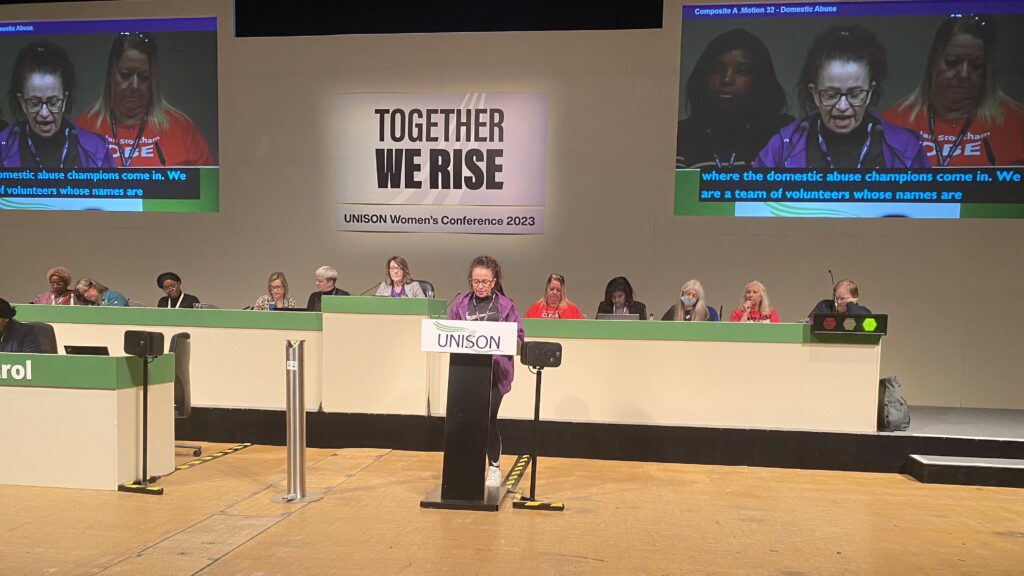Delegates at UNISON’s national delegate conference last week reaffirmed the union’s commitment to campaign for the decriminalisation of abortion in England, Scotland and Wales.
Greenwich Local Government branch proposed a motion on defending abortion rights, which was described as “very important and timely” in the light of the overturning of Roe v Wade by the US Supreme Court last year, “the biggest attack on abortion rights since the 1970s,” and the recent jailing in the UK of mother of three Carla Foster for ending her pregnancy.
Speaking for the national executive council (NEC) in support of the motion, Liz Wheatley (pictured) called Ms Foster’s 28-month sentence, half of which must be spent in custody, “a disgrace”.
She added: “This ruling will give confidence to all those who stand outside clinics harassing women trying to exercise their right to choose, to all those who want to turn the clock back and send us into the backstreets.
“Bans, laws and rulings like this won’t stop abortions, they’ll only stop safe abortions. They will drive abortion underground and see the return of people dying from backstreet abortions. And they will make it even harder for Black women, for women with disabilities to access abortions.”
Ms Wheatley outlined a number of instances of women being investigated by the police in England and Wales, in the past eight years, to see if they had had ‘illegal’ abortions or for trying to terminate a pregnancy, including a woman who had a stillbirth and was still in hospital.
“For these women, for Carla Foster, for many others, we have to campaign for decriminalisation, she said. “The fact that abortion is still a criminal offence in this country has to change.”
The article Conference restates UNISON’s campaign for abortion rights first appeared on the UNISON National site.
